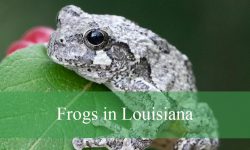Pitbulls are one of the most recognizable dog breeds worldwide, but have you ever heard of the Blue Nose Pitbull? If not, you’re in for a treat. While these dogs share many similarities with other Pitbulls, they have one distinguishing feature that sets them apart: their unique blue-colored noses.
The Blue Nose Pitbull is a striking variation of the American Pitbull Terrier, and in this article, we’ll dive deep into everything you need to know before bringing one into your home.
From their temperament and training requirements to health considerations and how they fit in with families, read on to discover the ins and outs of owning a Blue Nose Pitbull.
Overview of the Blue Nose Pitbull

Before we explore the specifics of owning a Blue Nose Pitbull, let’s take a moment to understand the breed’s basic characteristics. A Blue Nose Pitbull is not a separate breed but a type of American Pitbull Terrier, a breed known for its muscular build, loyalty, and affection towards family. What makes the Blue Nose Pitbull stand out is its striking grayish-blue coat, which is the result of a recessive gene. In fact, the term “blue nose” refers to the nose’s unique color, which matches the dog’s coat, making them visually distinct from other Pitbulls.
Here are some key characteristics of Blue Nose Pitbulls:
- Height: 18 – 21 inches
- Weight: 30 – 60 pounds
- Lifespan: 10 – 14 years
- Colors: Blue, blue and white
- Temperament: Loyal, loving, intelligent, mild-mannered, easy to train, goofy, confident
Despite their powerful, muscular physique, these dogs are incredibly loving and affectionate. They form strong bonds with their families and are often described as “goofballs” due to their playful nature. If you are considering adopting a Blue Nose Pitbull, it’s important to understand their characteristics and how they interact with family members and other pets.
Blue Nose Pitbull Puppies: What to Expect
Blue Nose Pitbull puppies are a rare and sought-after variation of the American Pitbull Terrier. As a result of their rarity, these puppies are typically more expensive than other Pitbull puppies, often ranging from $750 to $2,000. The price may vary depending on the breeder, the dog’s lineage, and whether the puppy is from show-quality parents.
While you may be able to find a Blue Nose Pitbull at a shelter, they are often surrendered by owners who can no longer care for them, sometimes due to misconceptions or breed restrictions in rental properties. If you are open to adoption, this can be a more affordable option. However, keep in mind that adopting a dog from a shelter may come with its own set of challenges, such as potential behavioral issues or health concerns.
When you first bring a Blue Nose Pitbull puppy into your home, early socialization is key. Pitbull puppies are energetic and need exposure to various people, places, sounds, and other animals from a young age (around 7 to 16 weeks). Proper socialization will help them grow into well-rounded, well-behaved adult dogs.
Temperament and Intelligence of the Blue Nose Pitbull
Blue Nose Pitbulls are known for their high intelligence and loyalty. These dogs love to be around people and form strong bonds with their family members. Whether you’re playing in the backyard, going for a walk, or relaxing on the couch, your Blue Nose Pitbull will be by your side, always eager to please.
While they are naturally friendly and affectionate, Blue Nose Pitbulls can sometimes exhibit a stubborn streak, which means training can require some patience and consistency. Thankfully, these dogs are highly trainable because they thrive on positive reinforcement and enjoy engaging in activities with their owners. They are quick learners, but like many other breeds, they benefit from consistent training sessions.
However, keep in mind that Blue Nose Pitbulls are prone to separation anxiety. They don’t do well when left alone for extended periods and may become anxious or destructive if left unsupervised. To prevent this, be sure to provide ample exercise and mental stimulation, as this will help keep your Pitbull occupied and less likely to engage in destructive behavior when left alone.
Are Blue Nose Pitbulls Good for Families?
Absolutely! Despite their reputation, Blue Nose Pitbulls make excellent family pets. They are known for being great with children and are often described as gentle giants. They are affectionate, playful, and form strong emotional connections with their human family members. Pitbulls love to interact with their families, often displaying a goofy and fun-loving nature that kids adore.
However, due to their size and strength, it’s important to supervise interactions between children and any medium-to-large breed dog, including Blue Nose Pitbulls. While they don’t typically display aggression, their playful nature may unintentionally knock over smaller children during playtime.
Pitbulls are not natural watchdogs, as they are generally friendly toward strangers and will often greet visitors with excitement. While their muscular physique may discourage intruders, their social and friendly nature means they may not bark or react aggressively to unfamiliar people. Nonetheless, they are fiercely protective of their families and will act to defend their loved ones if necessary.
Do Blue Nose Pitbulls Get Along With Other Pets?
Pitbulls, including Blue Nose Pitbulls, have a high prey drive and may not always get along well with other pets, especially small animals or other dogs. This breed is more likely to show aggression toward other dogs, particularly those of the same sex. Early socialization can help mitigate this tendency, but it’s important to note that many Pitbulls are best suited as the only pet in the household.
If you already have other dogs or pets, consider how your Blue Nose Pitbull will integrate into the family. It may be easier to introduce a puppy to your existing pets than an adult Pitbull with a more established personality. If you’re considering adopting a second dog, ensure both dogs are compatible and have similar energy levels.
Essential Care for Your Blue Nose Pitbull
If you’re ready to welcome a Blue Nose Pitbull into your family, there are several important aspects of their care that you should be aware of. From their diet and exercise needs to grooming and health concerns, providing the best care possible will help ensure your dog thrives.
Food and Diet Requirements
Blue Nose Pitbulls are active, muscular dogs that require a high-quality diet to stay healthy. Ensure that your dog’s food is rich in protein and contains essential nutrients like fruits and vegetables. A typical Blue Nose Pitbull will need about 1.5 to 2.5 cups of dog food per day, depending on their size, age, and activity level.
When selecting dog food, choose brands that list high-quality protein sources, such as beef, chicken, or turkey, as the primary ingredient. Avoid foods with artificial preservatives and flavorings, and limit treats to about 10% of their daily caloric intake.
Exercise Requirements
Pitbulls are active and energetic, and they require ample physical exercise to remain healthy and well-behaved. A minimum of 90 minutes to 2 hours of exercise per day is necessary for a Blue Nose Pitbull. This can include daily walks, jogs, and interactive play sessions. Due to their strong prey drive, always keep your Blue Nose Pitbull on a leash during walks to prevent them from chasing smaller animals.
Regular exercise helps keep your Pitbull fit and mentally stimulated, reducing the likelihood of destructive behaviors.
Grooming Needs
One of the advantages of owning a Blue Nose Pitbull is their low-maintenance grooming routine. These dogs have short coats that shed minimally, although they may shed a bit more during seasonal changes. Regular brushing once a week should suffice, along with occasional baths using mild shampoo. Keep your Pitbull’s nails trimmed and check their ears regularly for any signs of infection.
Dental hygiene is important for Blue Nose Pitbulls, so make sure to brush their teeth several times a week to prevent plaque buildup and gum disease.
Health Considerations
Blue Nose Pitbulls are generally healthy dogs, but like all breeds, they are susceptible to certain health issues. Some of the more common conditions to be aware of include:
- Skin allergies
- Deafness
- Hip dysplasia
- Elbow dysplasia
- Progressive retinal atrophy (PRA)
Be sure to schedule regular vet check-ups and keep an eye out for signs of discomfort or illness. A healthy diet, regular exercise, and preventive care can go a long way in ensuring your Blue Nose Pitbull remains healthy and happy.
Fun Facts About the Blue Nose Pitbull
While we’ve covered much of the essential information you need to know, here are three fun facts about Blue Nose Pitbulls that you may not have known:
- Impressive Jumpers: Blue Nose Pitbulls are known for their impressive jumping ability. With their strong hind legs, they can leap 4 to 5 feet high and often excel in agility courses.
- Not All Have Blue Noses: Despite the name, not all Blue Nose Pitbulls will have a blue nose. Some may inherit a different color nose, like pink or black, depending on their genetic makeup.
- Emotionally Sensitive: Blue Nose Pitbulls are highly in tune with their owners’ emotions. They can sense when you’re upset or happy, making them excellent companions for people in need of emotional support.
Final Thoughts
The Blue Nose Pitbull is a loyal, loving, and intelligent companion that makes an excellent addition to active families. While they may have an undeserved reputation, these dogs are generally friendly, affectionate, and devoted to their families. With proper care, training, and socialization, a Blue Nose Pitbull can be a wonderful family pet. However, it’s important to remember that owning a dog is a lifelong commitment, and understanding the breed’s unique needs will help ensure a happy and healthy life for both you and your furry friend.






